Frozen organic strawberries sold at various stores including Costco and Aldi, which were also included in a frozen fruit mix at Trader Joe’s, are being recalled over a link to an outbreak of hepatitis A infection in Washington state.
The U.S. Food and Drug Administration issued the alert, advising people not to consume, sell, or serve certain brands of organic frozen strawberries.
So far, five people have contracted hepatitis A after consuming it, two of whom have been hospitalized.
The Centers for Disease Control and Prevention say all five people who became infected had eaten frozen strawberries, all sold by the same supplier.
The supplier had imported strawberries from certain farms in Baja California, Mexico in 2022.

Frozen organic strawberries sold at various stores including Costco and Aldi, which were also included in a frozen fruit mix at Trader Joe’s, are being recalled over a link to an outbreak of hepatitis A infection in Washington state

The supplier had imported strawberries from certain farms in Baja California, Mexico in 2022. Pictured is a day laborer working on a farm in a strawberry field in the San Quintin Valley, Baja California State, Mexico (File Photo)
The hepatitis A strain behind the recent outbreak is genetically identical to the one responsible for another hepatitis outbreak last year. On this occasion, the source appeared to be fresh organic strawberries imported from Mexico and sold at various retailers in the US.
The bags of strawberries included in this current recall have a best before date of April through November 2024.
Both the CDC and FDA advise people to throw out recalled strawberries they may have in their freezers or return them to the store where they bought them for a refund.
The two suppliers have recalled their organic frozen strawberries from San Diego-based California Splendor.
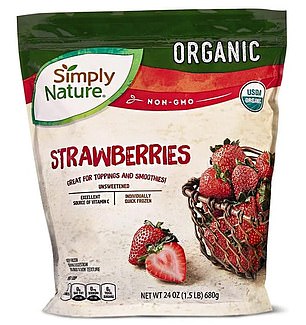
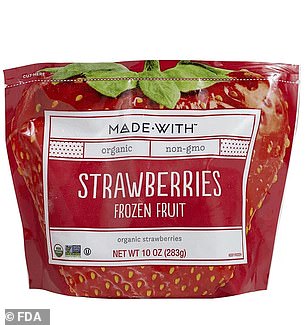
Simply Nature, organic strawberries are being recalled, left, as are Made With, organic strawberries, right
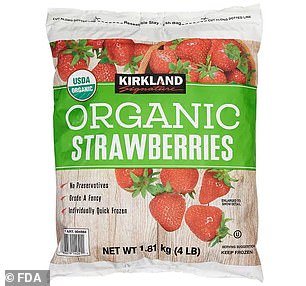

Kirkland signature 4-pound. Bag of Frozen Whole Organic Strawberries, left, are on the recall list, as is Trader Joe’s, Organic Tropical Fruit Blend, right
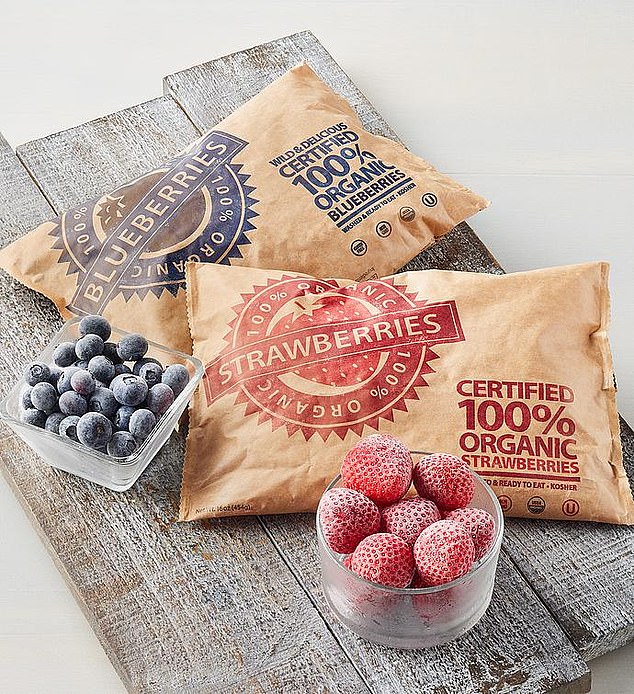
One of the recalled items – Vital Choice frozen strawberries are being recalled
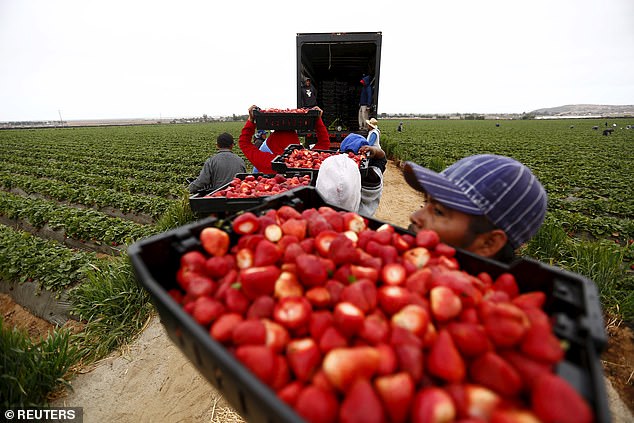
Fruit pickers hold baskets of strawberries as they line up before weighing them at a farm in San Quintin, Baja California (File Photo)
It’s recalling batches of 4-pound bags of Kirkland-brand frozen strawberries purchased at Costco stores in California.
Gresham, Oregon-based Scenic Fruit Company is also voluntarily recalling organic frozen strawberries sold to Costco, Aldi, KeHE, Vital Choice Seafood and PCC Community Markets in certain states along with Trader Joe’s in the United States.
The strawberries included in Trader Joe’s Organic Tropical Fruit Blend are also subject to the recall.
Hepatitis A is a virus that attacks the liver with symptoms such as tiredness, nausea, vomiting, stomach pain, yellowing of the skin or eyes, dark urine and light-colored stools.
People usually get sick between 15 and 50 days after eating or drinking the contaminated food or water.
Some infections, particularly in children under the age of six, may not cause any symptoms.
The virus can survive freezing, lasting several hours on hands and even days on contaminated surfaces.
The CDC recommends that all adults be screened for hepatitis B at least once in their lifetime because the disease is linked to liver disease and cancer.

